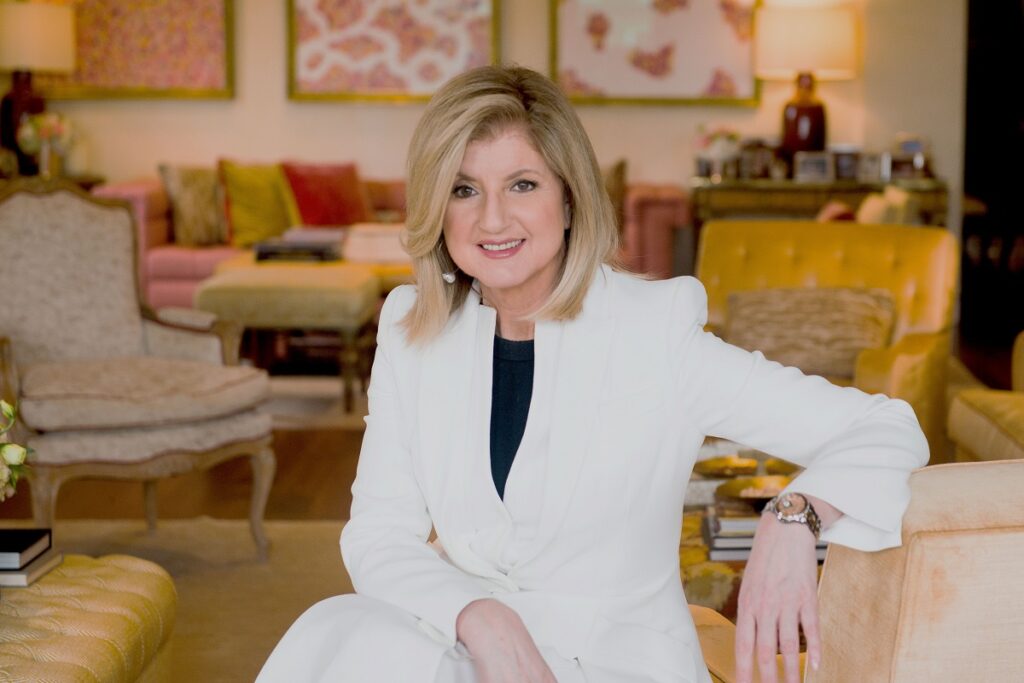HRZone spoke to Arianna Huffington before her keynote at Unleash 2017 (formerly known as HR Tech World) in Amsterdam in October 2017.
Arianna Huffington is not against transformative technologies but thinks people should set boundaries to retain their humanity. After all, we’ve done it before. Why can’t we do it again?
“When electricity was invented, people would sleep with the lights on. Now we don’t do that, but we aren’t anti-tech, we are just responding. We realise we need to turn electricity off occasionally. We must use new technologies but make it very clear we need to put the human being at the centre.”
Right now we’re sleeping with the lights on again, but the stakes are far higher. Modern technology is so sophisticated and pervasive that boundary-setting is fundamental to our fulfilment as human beings.
Unfortunately, most of us aren’t doing it.
“Right now our addiction to our devices is about everything, it’s about work and social media, it’s about games. It’s a portal to every aspect of our lives. We are at an inflection point.”
Huffington’s mission is to help us set boundaries to tackle technology-induced stress and the cultural addiction to always-on work that leads to burnout. A partial solution, she believes, can be found in the problem – we must build technologies that help us better switch off from the technology onslaught we face everyday.
Huffington’s company, Thrive Global, has picked up the baton. They will soon release an app that places smartphones into ‘thrive mode,’ temporarily blocking functionality.
If someone sends you a text when your phone is in thrive mode, they will receive an automatic text back informing them when you will next be available.
The point of the app is to “protect sacred time.” Dinner with children. Recuperation. Reading.
Huffington’s mission is to stop technology-induced stress and the cultural addiction to always-on work that leads to burnout.
Huffington’s mission is personal: a work-induced collapse earlier in her career left her with a broken cheekbone and a set of renewed priorities.
Her story is inspiring but not unique. Many of us re-evaluate priorities in the face of injury or accident. But these are personal journeys. How do we convince others to put the brakes on when they feel no reason to?
The task is made more difficult as we realise the full scale of the technology problem. We now recognise technology addiction: this discourages self-reflection because no-one wants to think they don’t control their lives and behaviour.
Changing cultural pressures is therefore easier than changing the individual – at least in the beginning. That’s why Huffington has her eye on HR and workplace culture.
“Culture has bought into a delusion: that we are more powerful and more successful when we are always on. It is a cultural assumption, disproved by data.
“As we change culture, whether that’s workplace culture or societal culture, we change how much easier it is for people to change their own behaviour. If friends expect you to text back straight away, what does that say?
“Culture change can shift what we brag about – we go from bragging about being on to bragging about being off.”
Effective cultural change in the workplace is difficult, but Huffington is clear on the way to get buy-in from the top.
“We approach it from performance. If you approach it from wellbeing, it becomes a soft HR benefit. We want it to be a hardcore business outcome because that’s what will achieve adoption.
“You can then measure results using factors like productivity, healthcare costs, retention and engagement.”
Companies increasingly recognise the costs of burnout, says Huffington, which pushes them to action.
“It goes beyond employee health: it affects business metrics. When people are burned out they are 30% more likely to leave the company. It also reduces productivity. People are less engaged. It increases healthcare costs. You become known as a company where people burnout, so it reduces recruitment success.”
Culture has bought into a delusion: that we are more powerful and more successful when we are always on.
Culture, says Huffington, is the organisation’s immune system. When it’s strong, it’s “less likely to get sick.” When it is defined by burnout, it gets ill more often. It ‘catches’ viruses (such as counterproductive behaviours) because employees aren’t cognitively strong enough to resist them or because there aren’t sufficient ways to redress grievances.
If we can reset cultures to prioritise employee wellbeing, to focus on being productive rather than busy, to recognise the dangers of technology overload, we can help people reconnect with the meaning of being human and move us towards a healthier attitude to work.
That’s the goal. Huffington is a straight-talker and doesn’t mince her words. Technology is getting more overt and more intrusive and we need to make sure we use it to its fullest advantage while separating the parts of ourselves that we must cherish and respect.
We cannot continue as we have been. The stakes – and the cost to humanity – are too high.
“For the human operating system, downtime is a feature, not a bug,” says Huffington. “Helping humans connect with their own centre of peace and wisdom is critical if they are going to be productive, resilient and healthy.”







One Response
Thank you, Jamie – to hear
Thank you, Jamie – to hear Arianna speak at HR Tech World this week was inspirational. It is commonplace to profess a wisdom in wellness, worklife balance, holism and business ethics. Likewise in competitive advantage, leadership and the bottom line. But to profess to and to evidence both strikes of someone whose tips are worthy of taking note of. I urge all to make their own version of her “augmented humanity” in the organisation that you lead.